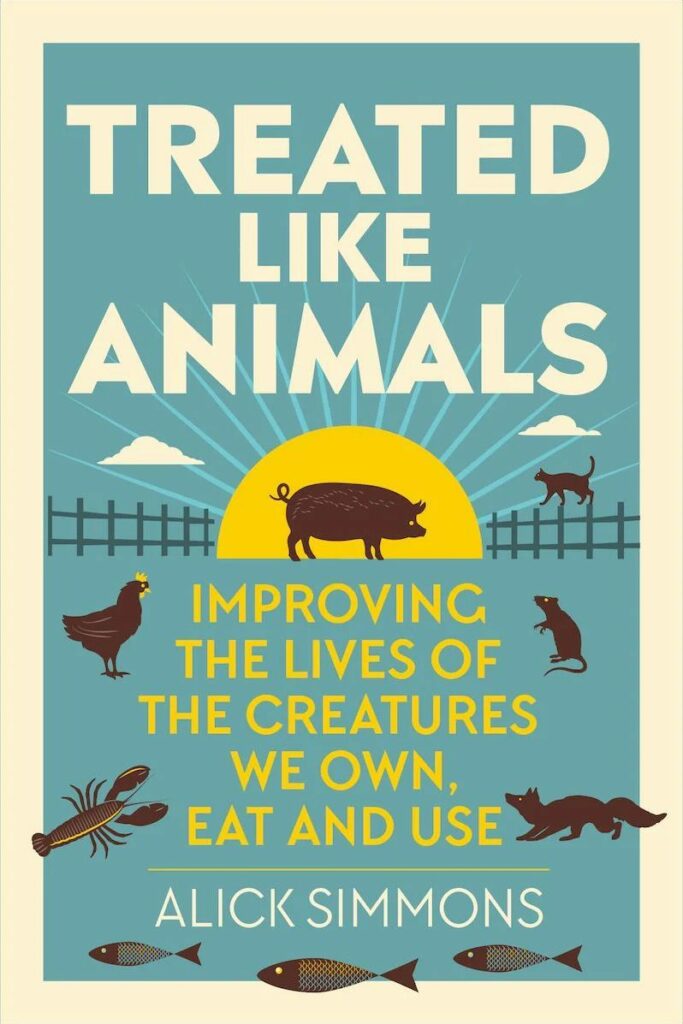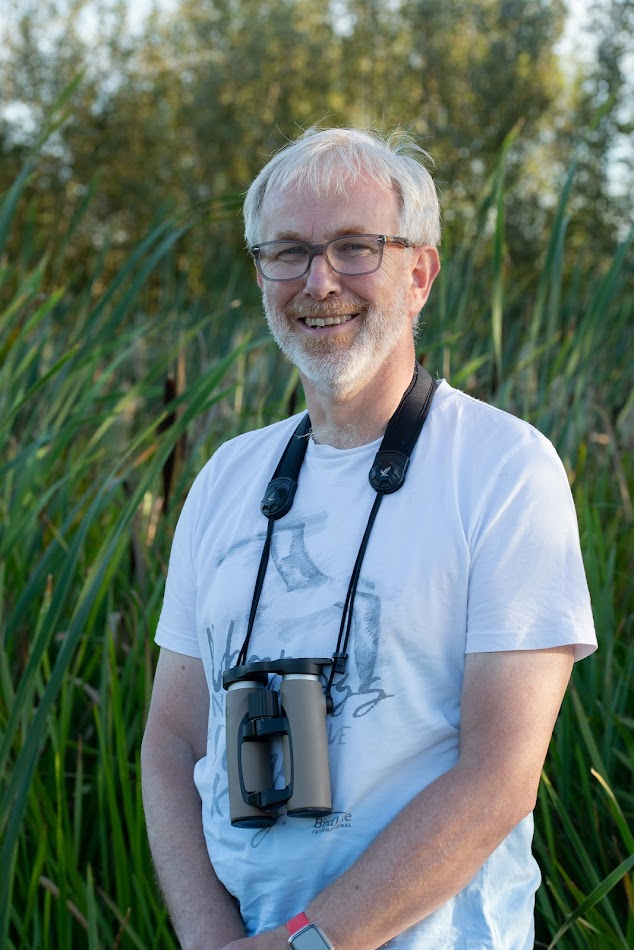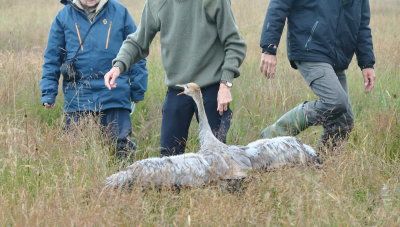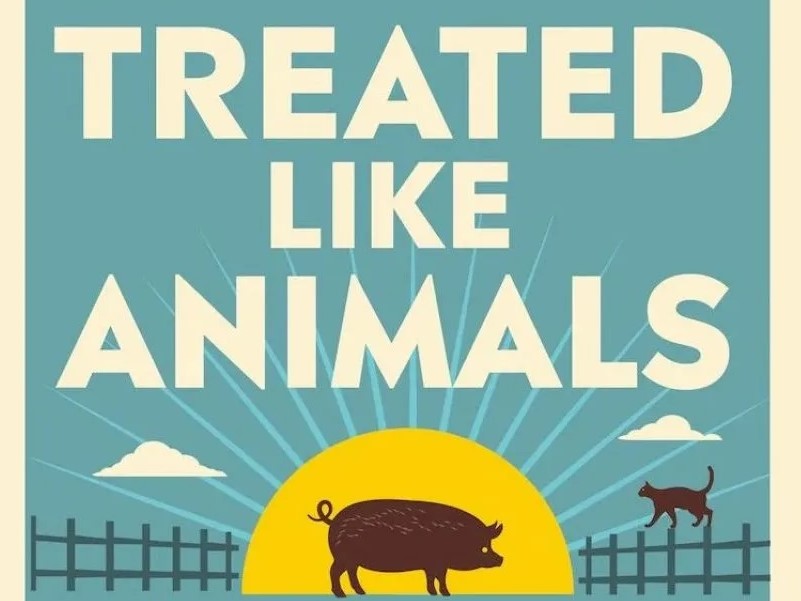 Treated Like Animals, by Alick Simmons, provides an incisive look at the way we treat animals and highlights the many ways in which we are complicit in their exploitation – whether that is via the food we eat, the pets we keep as companions, the medicines we take that rely on animal research, or the wildlife that is ‘managed’ on our behalf.
Treated Like Animals, by Alick Simmons, provides an incisive look at the way we treat animals and highlights the many ways in which we are complicit in their exploitation – whether that is via the food we eat, the pets we keep as companions, the medicines we take that rely on animal research, or the wildlife that is ‘managed’ on our behalf.
Although many laws are in place that protect the rights of certain animals in certain situations, many of these do not take into account the science behind the animal’s ability to suffer, nor the humaneness of the methods used. In this book, Simmons calls on us to face the facts about how animals are exploited and to form our own, educated opinions about these issues.
 Alick Simmons is a veterinarian and a naturalist. During a career spanning 35 years he held the position of the UK Government’s Deputy Chief Veterinary Officer (2007-2016) and the UK Food Standards Agency’s Veterinary Director (2004-2007). In 2015 he began conservation volunteering, and has been involved in survey projects for both waders and cranes. He is currently chair of the Universities Federation for Animal Welfare and the Humane Slaughter Association. He also serves as a Trustee of the Dorset Wildlife Trust and chairs the EPIC disease control steering group on behalf of the Scottish Government.
Alick Simmons is a veterinarian and a naturalist. During a career spanning 35 years he held the position of the UK Government’s Deputy Chief Veterinary Officer (2007-2016) and the UK Food Standards Agency’s Veterinary Director (2004-2007). In 2015 he began conservation volunteering, and has been involved in survey projects for both waders and cranes. He is currently chair of the Universities Federation for Animal Welfare and the Humane Slaughter Association. He also serves as a Trustee of the Dorset Wildlife Trust and chairs the EPIC disease control steering group on behalf of the Scottish Government.
In this Q&A, we chatted with Alick about the book and about how our opinions on animal welfare and ethics can and should be a priority.
Our attitudes to animal welfare are heavily influenced by our culture, and our opinions and values often reflect those of our families, peers and country/region rather than being based on objective facts (for example, you mention early on in the book the difference in our reactions to eating a lamb compared to a puppy). Do you think this is a significant barrier to people creating an objectively valid personal code of ethics?
Culture influences our attitudes to animals, without a doubt. It varies between countries: most Brits loathe the idea of bull fighting but it has been an important part of popular culture in Spain for centuries. However, attitudes are not fixed and can change over time: 93 per cent of 16- to 24-year-old Spaniards now say they don’t support bullfighting.
Culture also drives differences in attitudes towards certain species: the horse enjoys an exalted status in Britain with several very well-heeled charities dedicated to their support. Nothing similar exists for cattle and sheep. And the idea of eating a horse is simply abhorrent to most people. The law protecting horses in transport, on farm, etc is much tighter than it is for farmed animals. There is no logical explanation for this.
When it comes to research animals, the majority of us reluctantly accept the need to use mice and rats, but are opposed to the use of dogs, cats and primates despite the better data they yield in some fields of research. Yet, the capacity to suffer for these species is very likely to be similar.
So, yes, culture is a barrier to the scientifically and ethically sound treatment of animals. We need to ignore cultural norms and prejudices, give animals the benefit of the doubt and assume that all vertebrates (and a growing number invertebrate species), regardless of their ‘use’ or circumstances, have the capacity to suffer.
In writing this book and considering the issues discussed within, did you find it hard to separate emotion from fact? Or do you think that it is important to not separate the two, since emotion is an important prerequisite to having compassion and empathy for the experience and lives of other species?
We are emotional beings, capable of empathy. Although we can’t directly experience the pain and suffering of other people, it doesn’t stop us wanting to help, to relieve that suffering. Indeed, our emotions, our empathy, it can be argued, are part of the bedrock of our society and why we exhibit altruism.
However, separating emotion from fact is difficult, perhaps impossible. Which is why most of us behave inconsistently when it comes to animals. We appear to care more about the fate of a kitten than that of a rat. Instead of concentrating on the differences, real or imagined, between the two – one is cute, the other carries disease – remember that the nervous systems of both are very similar – if the kitten has a sophisticated brain, has defined pain pathways and the cognitive capacity to suffer, then so does the rat. That doesn’t mean we can’t intervene against the rat if it threatens our health. But it does mean we should strive to reduce the need to intervene and do it humanely when all else fails.
How much of a problem do you consider it to be that we are increasingly reliant on social media as our main source of news and information – much of which may be incorrect, misleading or extremist in nature?
I use Twitter but no other social media. Twitter is, like fire, a great servant but a poor master. A substantial number of the lovely reviews of Treated Like Animals came from people I’ve been interacting with on Twitter. It is unlikely that we would have ‘met’ otherwise. But social media is useless for discussing complex and controversial matters – like animal welfare – because nuance, uncertainty and subtlety are difficult to convey in 280 characters. I try to avoid getting into convoluted interplays because it rarely concludes well. I’m not always successful. However, despite these drawbacks, Twitter is great for signposting to new publications, blog posts and for advertising conferences and even jobs. Use it wisely and be wary of getting drawn into over-simplified arguments. Difficult, complex issues rarely have simple solutions.

Do you have any concerns that the current pressures in people’s lives, such as the cost of living crisis, the Covid-19 pandemic, war in Ukraine, climate crisis etc., are impacting people so much that they don’t feel as though they have the time, energy or money to prioritise animal rights and ethics? For example, if someone is struggling to make their food budget last the month, then purchasing cheap meat with poor welfare standards may be the most feasible option at that time.
It has been said that a concern for animal welfare is a luxury indulged in by the affluent. I disagree. Society has set animal welfare norms much of which are coded in legislation – which should be observed no matter how straitened our circumstances. The first few of these norms were set when living standards were much lower than they are today. That said, we live in difficult times and with less buying power, people have difficult choices to make. The cheapest meat is chicken and it’s also the world’s favourite. The meat chicken (known as the broiler) may have won the post-WWII race to produce the most abundant animal protein but at what cost? As Chapter 5 of Treated Like Animals details, broiler welfare is generally poor and alternative, less intensive rearing systems meet the birds’ needs better. However, the meat is more expensive. I argue that it is better for you (and the birds) to eat smaller amounts of better quality, slower grown meat than to eat larger amount of cheaper meat where standards are generally poorer. The difference can be made up with proteins from plant-based foods.
In terms of your own personal code of ethics, what troubles you the most? Or, to put it another way, what issue have you found the most difficult to reach a satisfactory position or opinion on?
There are two: First, while I still eat animal products, albeit less and less, the colossal scale of some farming systems used to rear pigs, fish, dairy cows and chickens does bother me. No matter how cleverly designed the buildings, how good the system, these animals cannot be cared for in the way that smaller operations allow. It’s simply not possible. Add to that, given the barren environments which hinder normal behaviour, one has to question whether these systems are acceptable. However, after a lifetime of eating cheese I am finding it difficult to switch to the alternatives.
The second is research. I find it difficult to justify the use of primates for basic neuroscience research (that is, research with no immediate practical benefit) because of its protracted and invasive nature. On the other hand, it is argued, without a comprehensive understanding of the architecture and function of the brain, our ability to eventually tackle degenerative nervous conditions like Alzheimer’s disease will be hindered. I find I can’t reach a position on this.

If, upon reading your book, people would like to take a more active role in promoting positive animal welfare in the UK, what might be the most important and impactful steps for them to consider?
There are two main ways where you can make a difference: First, vote with your feet. Avoid the products which, based on your own ethical position, you object to. Chapter 11 includes my own ethical framework and this can be adapted to your own position. Better still, get engaged and active. For example, join an organisation that campaigns for better animal welfare, get better informed, lobby your MP, etc. Voting with your feet, particularly if it snowballs, does make a difference – you only need to look at how supermarkets change their offer – to free range eggs and a growing range of vegan products, for example. But avoiding certain products won’t be effective against other welfare concerns where consumer-led action has little or no impact. Take for example, the killing of wildlife. Most are killed using methods which are demonstrably inhumane: spring traps, snares, live capture traps, glue traps and poisons. Very few of us see what goes on but take it from me – this is largely unregulated, poorly scrutinised and involves perhaps millions of animals dying in a way that we would not tolerate for research animals, farmed animals or our pets. There are no products to boycott here (except perhaps ‘game’ birds), but you could do a lot worse than getting involved with organisations which lobby government and research alternatives such as the Universities Federation for Animal Welfare, OneKind and Humane Society International.
Finally, what’s in store for you next? Do you have any more books planned?
I’d like to see how much of a success this book is first but I am keen to investigate the interface between animal welfare and conservation (and other types of land management). Chapter 7 of Treated Like Animals goes into this relationship but there is a great deal more to explore – for example, how our attitudes to abundant species differ from scarce ones, the demonisation of some species to justify the routine killing of others, and the apparent indifference that society shows to wild rodents. I’ve got a collaborator in mind but he doesn’t know it yet!
Treated Like Animals by Alick Simmons is due for publication in February 2023. It is published by Pelagic Publishing and available from nhbs.com.

